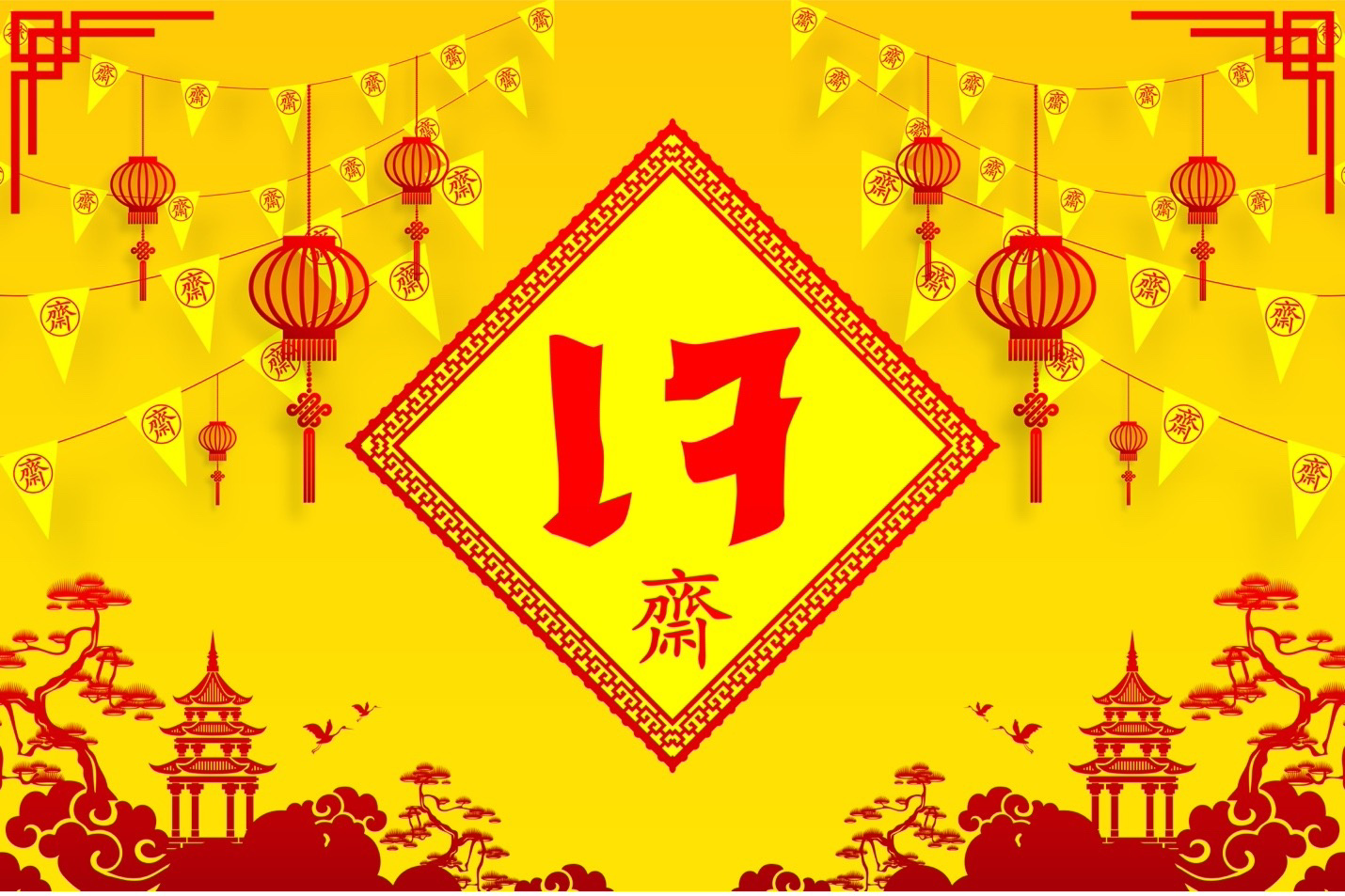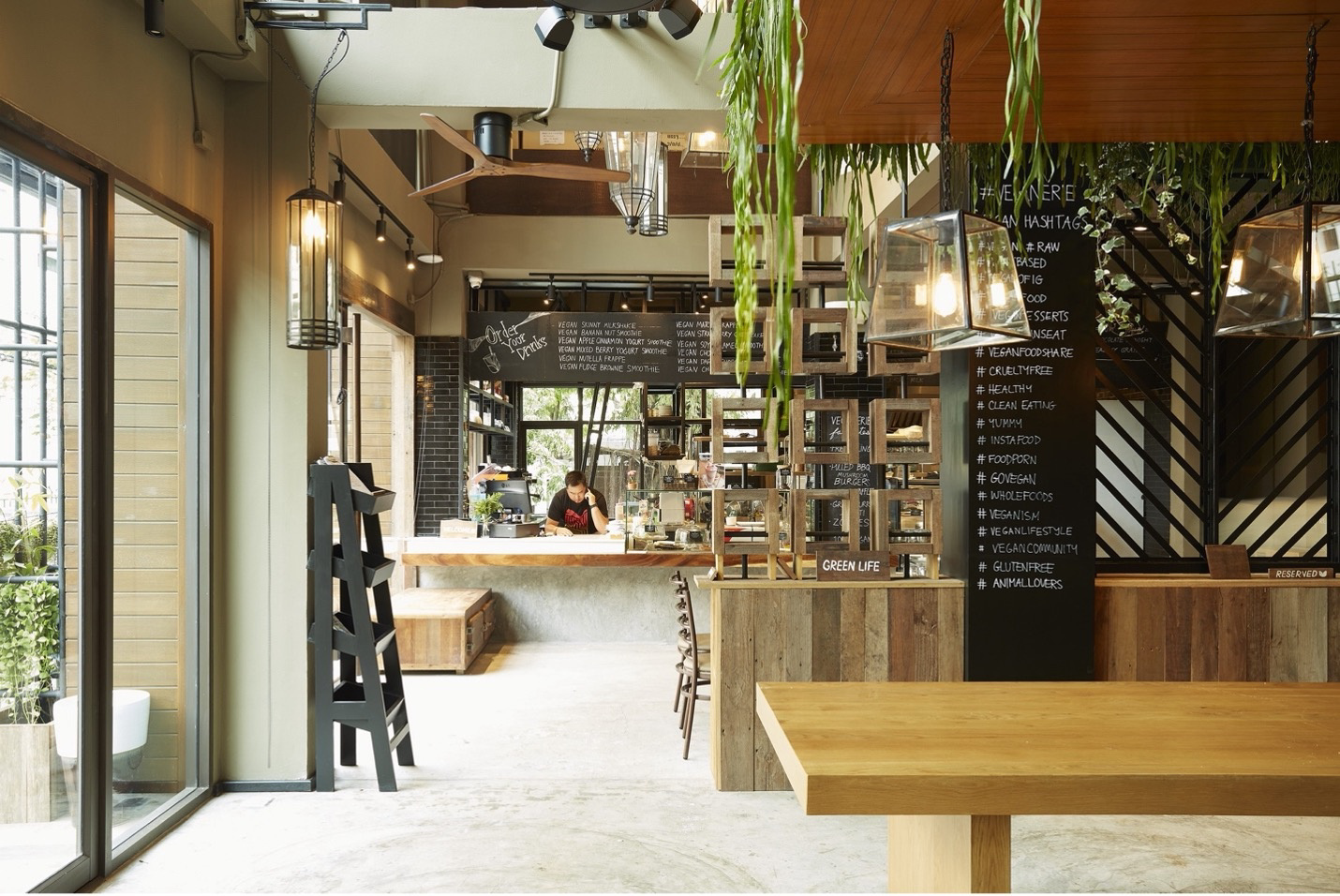How to Thrive as a Vegan Living in Thailand
How to Thrive as a Vegan Living in Thailand
วันที่นำเข้าข้อมูล 15 Jul 2021
วันที่ปรับปรุงข้อมูล 29 Nov 2022
How to Thrive as a Vegan Living in Thailand
You’ve just arrived in Thailand and decided to check out the local marketplace, where you’re flooded with so many foreign foods, it’s all a little overwhelming—especially if you’re vegan.
After stumbling to find the right words to describe veganism to the vendor, you give up and order a club sandwich with french fries. It doesn’t exactly scream Thai food, and you’re left feeling like you’re missing out on authentic Thai cuisine.
The truth is that Thailand is no stranger to plant-based diets. The country holds one of the largest vegetarian festivals in the world every October, Tesagan Gin Je, and its plant-based market is seeing average growth of 25% per year, making it easier than ever to live your best vegan life in the Land of Smiles.
Here are some tips on how anyone can thrive as a vegan in Thailand.
How to Thrive as a Vegan Living in Thailand:
1. Memorize some basic phrases.
2. Find your go-to restaurants.
3. Connect with your community.
4. When in doubt, cook it yourself.
1. Memorize some basic phrases.
If you want to navigate Thailand as a vegan, here are some essential Thai words and phrases that will make life easier for both you and your server. From street stall to restaurant, these phrases will take you to the vegan promised land:
- Chan gin jay - I eat vegan.
- Chan gin mungsaweerat - I eat vegetarian.
- Mai gin nuah sat - I don’t eat meat.
- Mai sai nahm phla - No fish sauce please.
Ending these sentences with ka or krub (for women and men, respectively) makes them more polite, which always goes a long way in Thai society.
Look out for this sign on restaurants, menu items, and product labels:

Jay (เจ) means vegan. Source: Shutterstock.com
The term jay is widely understood as meaning vegan, but it actually has the religious connotation of Buddhist cuisine. This means that jay restaurants and jay dishes can have other restrictions rooted in Buddhist precepts, including those against strong-smelling vegetables like onion and garlic or even serving alcohol.
2. Find your go-to restaurants.

Source: https://www.veganerie.co.th
Being vegan in Thailand does have its challenges, but pricing is not one of them. Unless you see yourself dining at malls or high-end vegan eateries every day, the cost of being vegan is considerably lower than for those who eat meat, thanks to the accessibility of local produce.
Online Platforms
As a vegan traveling or living in Thailand, the Happy Cow website is your best friend. It has a map with pinned restaurant locations and includes pricing, reviews, and photos of the food.
Outside of Happy Cow, there are several vegan spots listed on the popular Thai reviewer app & website, Wongnai (meaning, “inner circle”). Like TripAdvisor, it also lists nearby attractions, hotels, and spas, but enjoys wider usage among Thais and better reflects the appetites of the Thai people.
What makes the app especially useful is that it integrates delivery and discount reservation features with partner apps LINE MAN and Eatigo, respectively.
Night Markets
Anyone who’s lived here for a while will come to understand two things about Thais: they’re natural-born foodies, and they love night markets. That being the case, night markets are packed with food stalls and more than a few vegan options.
In places such as Krabi Night Market, Train Night Market Ratchada, or Pai Night Market, you can expect to spend around THB60 – 150 (US$1.90 – 4.80) per dish. Please keep in mind that there are food vendors who might use the same frying pan or cooking utensils that handle animal products.
Specific Restaurants
If you do decide to spend more on your lunch or dinner plans, places such as Veganerie, The Vegan Table, Bonita Cafe and Social Club, May Veggie Home, and Vegan Phangan offer dishes ranging from THB150 – 350 (US$4.80 – 11.15).
If you head north to Chiang Mai, some local favorites include Blue Diamond for Asian/Western food and delicious baked goods. Vegan Heaven offers traditional breakfast made vegan and other classic staples you might have been missing out on since you first became vegan.
3. Connect with your community.

Organic farming. Source: Lek & Greg Vegan Camp Facebook Page
If you’ve just moved to Thailand, you will probably face the challenge of being the only vegan at the dinner table, but it doesn’t have to stay that way. There are vegan communities all around the country, and they continue to grow as more people become aware of the lifestyle. It can be easier to spot vegan communities and vegan food in places such as Chiang Mai, Bangkok, and Koh Phangan, as these places are the main hubs for vegans and vegetarians.
You can connect with fellow vegans through Facebook groups such as Vegan Thailand, Koh Phangan Vegans, Vegans of Bangkok, and Veg Chiang Mai. These groups will offer further tips on life as a vegan in Thailand and keep you in the loop on the best food spots in the area.
Many people choose vegan lifestyles for reasons other than health & fitness and have a strong advocacy streak. Check out these groups if you’re interested in vegan-related activities:
- Root The Future: Revolves around educating people on climate change and are always looking for people for projects, outreach, and content creation. They’ve also partnered with Dear Tummy to create the first vegan supermarket in Thailand called Vegan Basket.
- Vegan Camp: Located in a small village called Li in Lamphun province, some 130 kilometers south of Chiang Mai. If you would like to know more about organic farming in Thailand, then this camp is for you.
Although the pandemic has forced it to suspend operations for the time being, the camp normally offers activities including gardening and harvesting, cooking, developing organic farming practices, creating natural products, and other creative projects.
4. When in doubt, cook it yourself.

Either you can’t go eat out at your favorite vegan spot because of current movement restrictions, or you’re hesitant to go outside or feeling sick. Maybe you’ve tried putting vegan instructions into your delivery app, but they never seem to get it just right.
Cooking at home is one way to make sure all the ingredients are, in fact, vegan. Here’s a selection of authentic vegan Thai recipes, ranging from popular to obscure:
- Pad Thai: Stir-fried noodles in a sweet and savory sauce, served with vegetables.
- Tom Yum Soup: An aromatic hot and sour soup that will have you sizzling with all its flavors.
- Massaman Tofu: A popular curry dish that easily substitutes meat with savory tofu and mushrooms.
- Pad Pak Boong: Stir-fried morning glory (can substitute with your vegetable of choice) cooked with soy sauce, chilies, onions, garlic, and a dash of sugar.
- Nam Prik Hed: Traditional chili paste dip, commonly served with Thai holy basil, cucumbers, dill, and long beans to dip into the paste.
The local fresh markets are a great way to stock your refrigerator on a budget. Most produce is sold in increments of 100 grams (“kheed”), but some are bundled together into kits to make common Thai dishes. Here are some pantry staples to look out for:
- Meat substitutes: Tofu, textured soy protein, vegan meat/fish balls
- Condiments: Soy sauce, mushroom sauce, fermented soybean paste (taocheow)
- Herbs: Galangal, lemongrass, ginger, Thai basil, coriander (sold whole, with roots), kaffir lime leaves
- Others: Coconut milk, curry paste
The Vegan Movement Grows in Thailand
Though relatively nascent, the conversation around veganism in Thailand is growing, with many Thai influencers like Miss Universe Thailand 2017 Maria Poonlertlarp, Bangkok-based vegan chef Maricel Lukkanit, and actor-activist Richie Kul endorsing the lifestyle and bringing it into the mainstream. In shopping malls, you will occasionally see vegan pop-up stalls selling homemade and organic products.
With more public demand for products that enable healthy and cruelty-free lifestyles, plant-based supermarkets and restaurants are on the rise nationwide, turning Thailand into an up-and-coming vegan paradise.

About the Author: Nanticha "Lynn" Ocharoenchai
A writer, screenwriter, and environmental activist, Lynn works as a communications consultant for international environmental organizations. She is passionate about exploring how narratives and solutions-based communications can be used to educate mainstream audiences and inspire environmental action among diverse demographics.
สถานเอกอัครราชทูต ณ กรุงเตหะราน
Office Hours: Sunday to Thursday, 08:30-12:00 and 13:00-16:30 (Except public holidays)